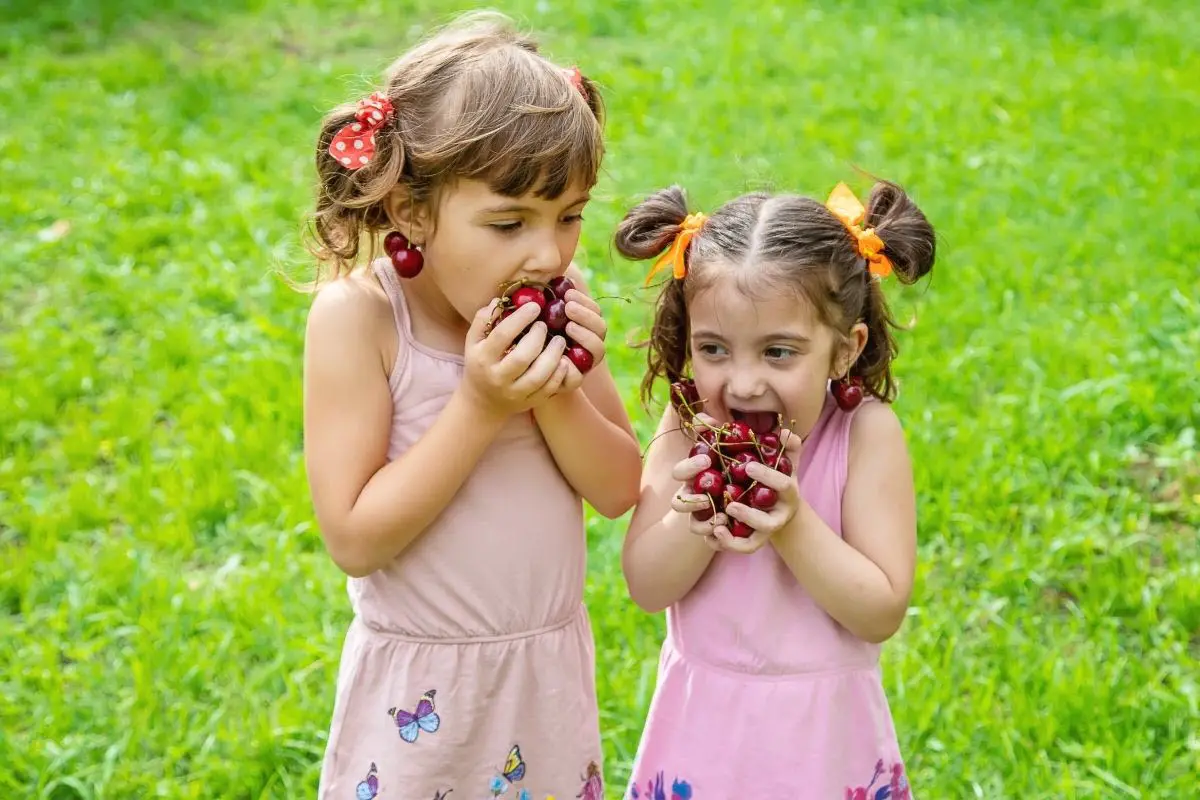Can You Compost Cherry Pits? — The Answer Might Surprise You
Eating cherries is one of life’s greatest joys! I just can’t have enough it!
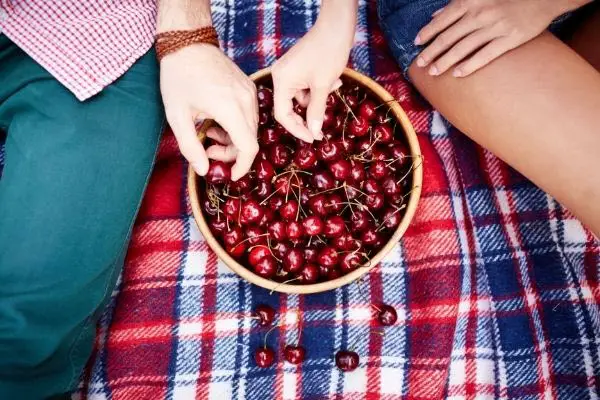
Accidentally eating a cherry pit isn’t harmful (though you should never swallow the pits on purpose!). I am always left wondering what to do with the leftover pits after enjoying some of this delicious fruit.
In many years of composting and doing Bokashi, I noticed that pits hardly ever decompose. And throwing pits in the trash seems like a huge waste? So, what’s the deal with pits and cherry pits, in particular? Can you compost cherry pits safely?
You could save the seeds to grow your own cherry trees. Although that is very close to my idea of fruit heaven, I really don’t have the space for an entire orchard!
In most cases, the best way to dispose of cherry pits is to repurpose them for your garden in a different way.
Cherry pits are relatively easy to compost. However, some people prefer to process the pits before composting to speed up the process and prevent unwanted seedlings.
Here’s everything you need to know about composting fruit pits safely and efficiently:
What Are Cherry Pits?
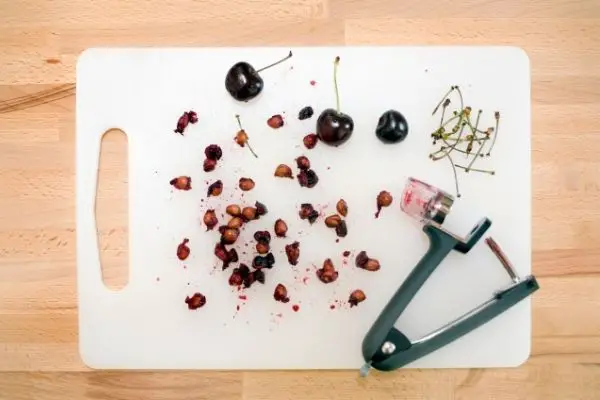
Despite what some people believe, a cherry pit is not actually a seed. Rather, it is a protective coating that protects the seed within.
The main purpose of a pit is to protect the more delicate seed inside until conditions are perfect for germination.
Do other types of fruit contain pits?
Pitted fruit is also called stone fruit or — in botanical terms — a drupe.
Many popular fruit varieties produce this type of seed coating. Other pitted fruit you might find in your grocery store include peaches, apricots, plums, and nectarines.
Can Cherry Pits Be Composted?
Yes. Cherry pits are a form of plant matter and can be safely placed in the compost.
With that said, adding whole pits to your compost pile isn’t always ideal.
Cherry pits can take months (or even years) to fully decompose. If your goal is to create smooth, consistent compost for your garden, the last thing you want is to add a bunch of hard pits to the mix.
Cherry pits may sprout in compost before having a chance to decompose. While this is more annoying than anything, it’s just one more thing to worry about in your quest for a more sustainable household.
What Is The Best Way To Compost Fruit Pits?
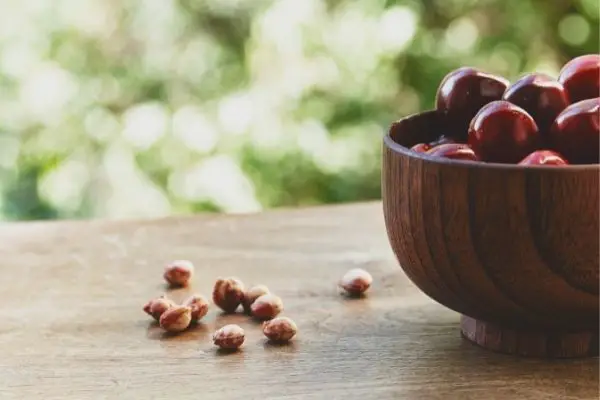
Again, the pits of cherries and other stone fruit can be safely composted. But we recommend taking a few extra steps to properly introduce these items to your compost heap.
Processing cherry pits before composting can speed up decomposition and prevent common issues like sprouting seeds.
You can break down fruit pits by soaking them in water overnight to soften the exterior. Use a high-powered blender or food processor to pulverize the pit-and-water mixture before adding it to your compost pile.
Another option is to roast the pits for about 30 minutes before grinding them into a fine powder.
If you do opt to compost whole fruit pits, be sure to screen your compost before use.
Screening isn’t always necessary but is a great way to remove clumps and debris from your compost before spreading it in your garden. Return the remaining pits to your compost pile to continue decomposing for a little bit (or a while) longer.
Frequently Asked Questions
Do cherry pits contain cyanide?
Cherry pits (as well as the seeds of apples, peaches, and apricots) contain a compound called amygdalin. When this compound is metabolized, it is converted into hydrogen cyanide.
While the thought of adding cyanide-containing fruit pits to your compost might be alarming, rest assured that the type and amount of chemicals present will not cause harm.
Including cherry pits in your compost heap will not disrupt the natural decomposition process. They also won’t contaminate the compost or your garden soil once broken down.
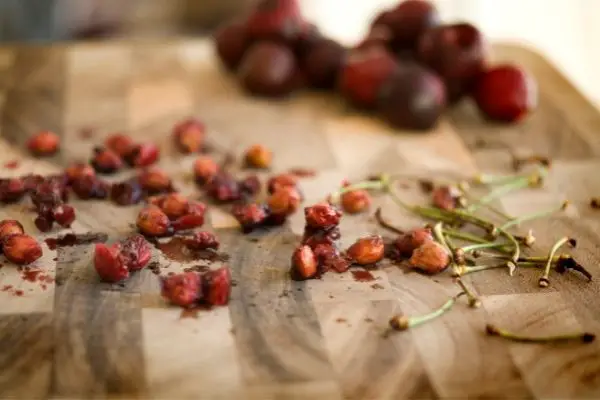
Can all fruit seeds go in the compost?
You can safely compost all common fruit seeds. Seeds are a type of plant matter and will decompose in your compost pile just like leaves, twigs, or fruit peels.
Blending or grinding seeds before composting can prevent unwanted germination from occurring.
Why are there sprouts growing in my compost pile?
The compost is where things go to decompose. So spotting fresh seedlings growing from your compost can be a shock.
Even if you don’t compost seeds from your kitchen, it’s nearly impossible to prevent wild seeds from entering your heap.
The ideal temperature for decomposition is too warm for most seeds to germinate.
If you notice more than one or two sprouts emerging from your compost pile, it could be a sign that the compost is too cool.
Moisture is necessary for heat-producing bacteria to thrive. If all else fails, ensure your compost pile is large enough to maintain the appropriate temperature.

